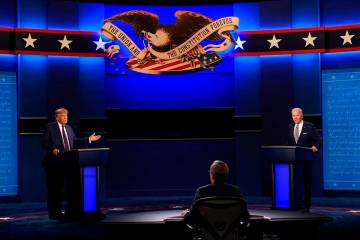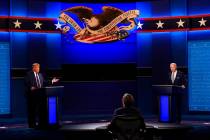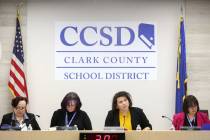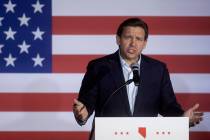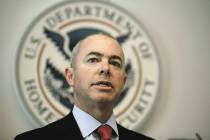EDITORIAL: ‘Jungle primary’ would be no panacea for Nevada
Democrats are still tallying votes in the Iowa debacle, although it appears that Pete Buttigieg and Bernie Sanders will lead the way heading into New Hampshire. Turns out the party that now routinely blames nefarious outside forces for its high-profile election losses couldn’t manage to run its own caucus in a small rural state without fouling it up.
The Democratic Party should be free to set the rules for its own presidential nominating procedures, whether it’s in Iowa, Nevada or anywhere else. But the irony of the Iowa stumble is rich, particularly as Democrats oppose even basic measures, such as voter ID, intended to promote the integrity of the process.
Nevada is on the Democratic calendar for Feb. 22, and state party operatives are certainly scurrying to ensure there is no repeat in the Silver State of this week’s embarrassment. But at this point, the entire caucus system is under the microscope. Ditto for the conventional, closed primary system.
Last week, a Republican lawmaker submitted an initiative petition to open Nevada primary elections to all voters. The proposal, put forth by state Sen. Ben Kieckhefer, R-Reno, would throw primary candidates into one pool for all partisan races, with the top two vote-getters, regardless of party, advancing to the general election. Currently, a voter must be registered as either a Democrat or Republican to participate in that party’s primary.
Sen. Kieckhefer argues the reform — which California adopted in 2011 — will get independent voters more involved. “This is about opening up government to the people of the state,” he said, “to giving voters more of a choice in who represents them in their government. And I think that’s a hard proposition to argue with.”
We’ll assume that Sen. Kieckhefer’s proposal is not politically motivated, although its hard to believe the GOP would push this absent a calculation that it might help it overcome a growing voter registration deficit. Proponents argue that including independents will lead to more moderate general election candidates, but there’s no evidence of that happening in the Golden State. Nor has the system significantly increased turnout.
“The big flaw in the top-two primary,” journalist Andrew Gumbel wrote in the Los Angeles Times in 2018, “is that while it purports to reward the best candidates regardless of party … it can just as easily penalize them” due to the potential for partisans to splinter their votes in crowded fields.
The political parties have a First Amendment right to select their own general election candidates, regardless of whether they experience an Iowa-like fiasco in the process. While the so-called “jungle primary” system that Sen. Kieckhefer envisions is intended to mute constitutional challenges in that regard, it brings its own unintended consequences and has typically fallen short of expectations.






